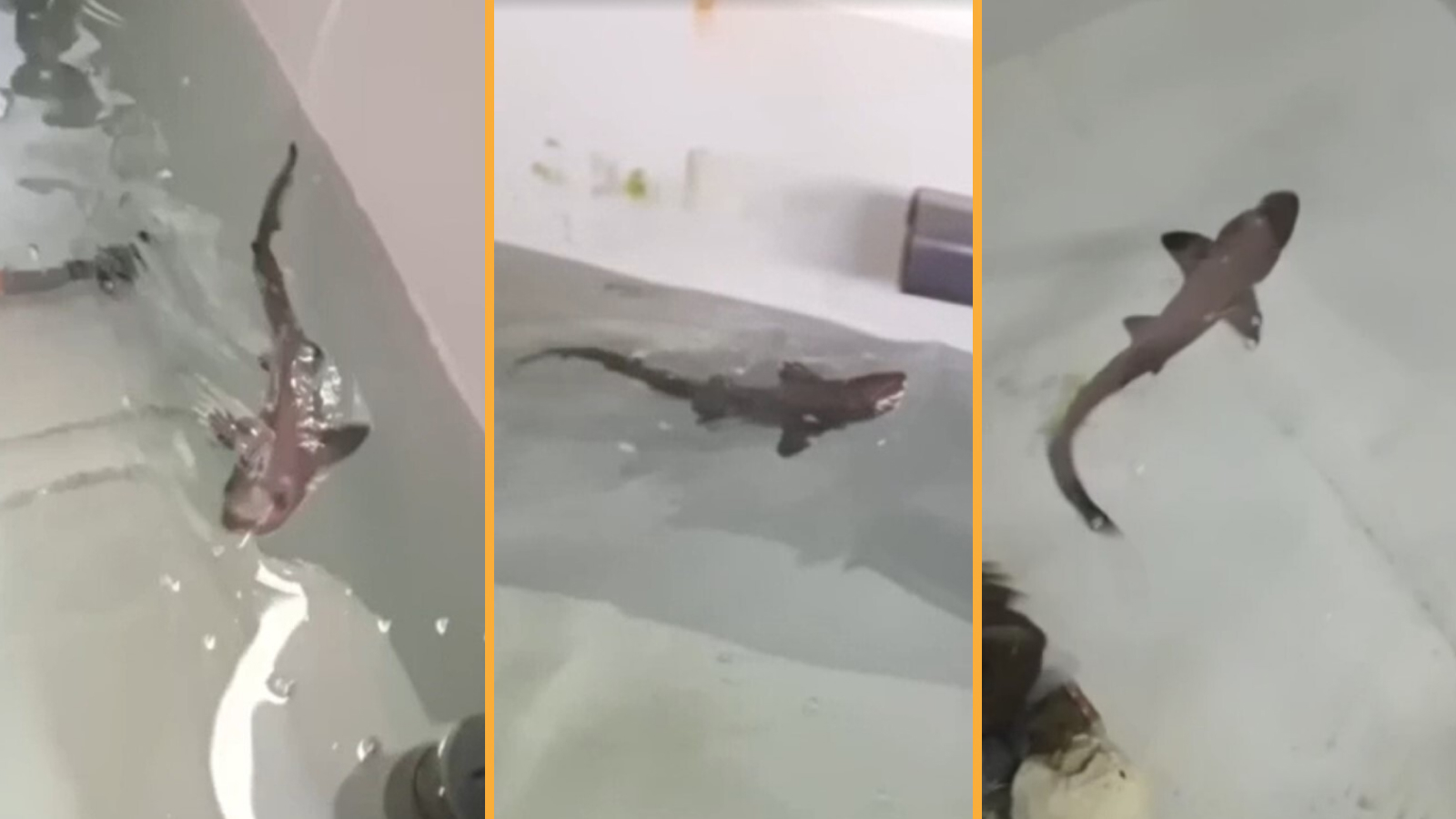
Captive female sharks at an aquarium in Italy keep reproducing on their own with no males involved, indicating that it could be a vital survival mechanism, according to a new study.
In the study published July 26 in the journal Scientific Reports, the scientists documented repeated asexual reproduction in two common smooth hound sharks (Mustelus mustelus), which are classified as an endangered species by the International Union for Conservation of Nature. The sharks are usually found in the Mediterranean Sea and other warm waters but are threatened by illegal fishing.
The two female sharks are in captivity at Cala Gonone Aquarium in Italy and have spent the last 14 years away from males. Since 2020, both females have reproduced asexually, which indicates facultative parthenogenesis.
Parthenogenesis means "virgin birth," in Greek and describes when an egg develops into an offspring without fertilization. While uncommon in vertebrates, this phenomenon has been observed in reptiles such as crocodiles and water snakes, amphibians and some fish.
Related: 8 animals that have virgin births
However, this is the first documented case of facultative parthenogenesis — the ability to reproduce both sexually and asexually — in this shark species. The researchers found that the two females could reproduce parthenogenetically roughly once a year. That rules out the possibility of sexual reproduction because of stored sperm, according to the researchers.
"Remarkably, this finding reveals that parthenogenesis can occur annually in these sharks, alternating between two females, and conclusively excludes long-term sperm storage as a cause," the authors wrote in the study.
In total, the pair has produced four offspring. The first pup was born in 2016, but it died and the remains were not studied. Three more pups have been born since — one in 2020, another in 2021 and a third in 2023. Only one (born in 2021) is still alive. All displayed bite marks on their bodies, which was likely the cause of death for the pups born in 2020 and 2023, according to the researchers.
To confirm the genetic origins of the offspring, the researchers took DNA samples from each of the three pups and compared them to the adult sharks. Their findings showed that in the set of markers tested, the offspring had identical genes to their mothers.
This discovery highlights the importance of parthenogenesis as a survival mechanism in wild populations with declining male numbers, the researchers said.
"These findings greatly enhance our understanding of reproductive strategies in sharks and could inform conservation efforts for endangered species," the authors said in the study.
While the study focused on common smooth-hound sharks, parthenogenesis has been reported in other species, including whitespotted bamboo sharks (Chiloscyllium plagiosum), zebra sharks (Stegostoma tigrinum), and swell sharks (C. ventriosum).







